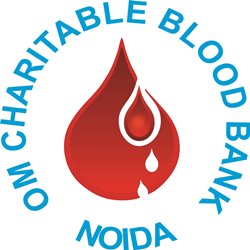Type of Donors
Voluntary donor is a person who gives blood, plasma or component freely and voluntarily without receiving payment in the form of money or a substitute for money but only for internally generated sense of altruism or community responsibility.
There are different types of blood donors.
They can be categorized as :
- Paid donors
- Professional donors
- Captive donors
- Family replacement donors
- Fringe motivated voluntary donors
- Altruistic donors
- Directed donors
- Autologous donors
- Aphaeresis donors
In India, first 3 types of blood donors are banned by the government order after Supreme Court's intervention. Voluntary or Altruistic donations are most desirable for any society to ensure safe and consistent blood supply. Commercial Or Paid Donor who gives blood in return for money or other form of payment in terms of direct exchange of cash or kind. These donors are usually not healthy, are often anemic and at risk of transfusion- transmissible infections (TTI).
Professional donors are donating blood on a regular, registered, semi-permanent or semi-salaried basis and for the same they may be paid on a unit-fee basis or monthly or weekly. Captive Donors Are Those who donate blood under the pressure by the superiors or reporting officers, sometimes for the benefit of cash or kind. Jail inmates could come under this category. These types of donors are not as safe because they are under Pressure to donate blood. They might hide the medical history.
Family Or Family Replacement Donors are donating blood in need of their relatives or friends and these types of donations are usually under compulsion. They may not be of the same group of the patient but they are under pressure for the same number Of units of blood as of patients requirement. Fringe Motivated Voluntary Donors are voluntary donors but motivated by fringe benefit attached to voluntary donation like day off, small gifts, good food after donation.
Altruistic Donors are those who give blood, plasma or other blood components voluntarily without receiving payment in the form of money or a substitute for money. Directed Donors are those who donate specifically for transfusion to a particular relative or friend. The donor and patient blood group should be similar. Directed donors are a type of replacement donors but here the same unit of blood is given to the designated person after following proper testing protocol. Autologous Donation is the process where the patient himself/herself donates blood for self. The same unit can be transfused. Autologous donation has few added advantages of easy availability on shelf during period of demand, safety from TTI, useful in case of rare blood group and no chance of getting alloimmunization
Apheresis is the procedure in which whole blood is collected from a donor or patient, separated into components, one or more of which is retained and the remaining elements are then returned to the person. The entire process is done through an advanced equipment in a comfortable environment. Apheresis units can reduce multiple donor exposure to the patient who is in regular need of blood components. By Apheresis procedure there is possibility of HLA matched donor unit in case of multiply transfused patient. Definitive risk groups of blood donors have been well defined and it is generally believed that safe donors are those who report behavioural risk factors and whose donations. Are repeatedly negative on screening.

